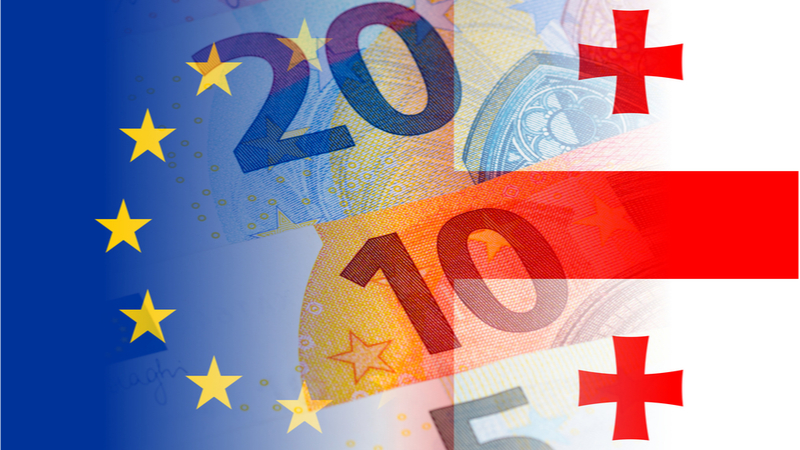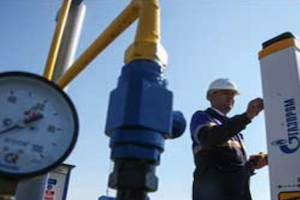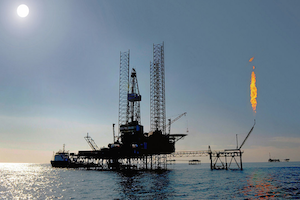Is a Tribunal for Kadyrov More Than Wishful Thinking?
By Marat Iliyasov
Ramzan Kadyrov, Kremlin-backed Chechen leader, faces serious allegations. A German NGO, the European Centre for Constitutional and Human Rights, accuses him of leading LGBTQ+ purges in Chechnya; Georgia alleged that he plotted journalist Giorgi Gabunia’s murder; while Ukraine accuses his forces of committing war crimes. Reports also link him to kidnappings, torture, and the murder of Chechen opposition figures and bloggers across Europe and Turkey. These accusations could place Kadyrov alongside internationally tried criminals such as former president of Serbia Slobodan Milošević or the Deputy Führer of the Nazi Party Rudolf Hess. But…, is this scenario plausible?

Photo source: tatarstan.ru
BACKGROUND: To begin with, it is important to examine how the International Criminal Court (ICC) and ad hoc tribunals are formed, who can submit a case to the ICC, and which individuals can be indicted.
The establishment of international tribunals and ICC are rooted in international law and the broader aim of creating a more just and accountable world. This development began after WWII, when military and political leaders from Nazi Germany and Imperial Japan were tried for their war crimes. These tribunals set a crucial precedent purported to halt crimes against humanity that concern the international community.
The Cold War (1946-1991) between the US and the USSR severely curtailed the enforcement of international justice. Crimes committed during this era often went unpunished because the perpetrators had the backing of these superpowers, which could effectively obstruct investigations or prosecutions via the UN Security Council. Without the willingness and cooperation of world powers and the countries involved, tribunals either could not be created or lacked enforcement mechanisms. For example, it took decades to try the Khmer Rouge’s crimes committed in 1970s in Cambodia. It became possible only when the Cambodian government finally supported the idea of establishing the Extraordinary Chambers in the Court of Cambodia (ECCC).
The fall of Communism in 1991 triggered more international armed conflicts and consequently war crimes. It also created new opportunities for international justice. The tribunals for former Yugoslavia, Rwanda, and Sierra Leone strengthened the possibility of prosecuting high-ranking officials for crimes against humanity. Notably, these courts succeeded in convicting former Serbia's President Slobodan Milošević and former Liberian President Charles Taylor—figures once deemed untouchable. These trials, same as the tribunals for Rwanda, Yugoslavia, and Liberia were made possible by key shifts in the internal power structures of these countries.
Even today, the willingness and collaboration of the domestic power structures remain the most important element in determining the feasibility of initiating a case. To prosecute Kadyrov, such cooperation would be required from Russia, which has consistently demonstrated its unwillingness to collaborate with the international bodies. Therefore, building a case against Kadyrov could potentially achieve only limited success, similar to the international tribunal for Lebanon. Established in 2009 to prosecute Hezbollah members for the assassination of Lebanon's Prime Minister Rafic Hariri in 2005, this special tribunal convicted and sentenced the identified culprits in absentia. This means that they can be punished only if captured, which renders this trial largely symbolic.
IMPLICATIONS: Various actors could theoretically initiate proceedings against Kadyrov, including the United Nations Security Council (UNSC), prosecutors from the International Criminal Court (ICC), national governments appealing for UN intervention, international organizations such as Amnesty International, and supreme courts of foreign countries invoking the principle of universal jurisdiction to prosecute war criminals.
However, the likelihood of any of these actors successfully leading such an initiative against Kadyrov and bringing him to justice remains low. The UNSC could act only if Russia, as a permanent member of the Council, either refrains from using its veto or initiates the process itself—both of which are highly unlikely. Russia has a long history of misusing its veto power in the UNSC and is a country where the rule of law is frequently breached. Moreover, given Kadyrov’s strong ties to Russian President Vladimir Putin, it is nearly inconceivable that Russia would support or initiate such efforts.
Initiatives could also come from international organizations, the ICC, national governments, or national courts of foreign countries under the principle of universal jurisdiction. To build a case, these initiators must gather substantial evidence and secure the cooperation of experts and witnesses. The ICC’s 2023 indictment of Vladimir Putin for war crimes demonstrates the institution's willingness to take bold action, such as cases initiated by Ukraine for war crimes committed on its territory by the Russian military. However, this does not guarantee that Kadyrov will be brought to court. The ICC's arrest warrant for Putin demonstrates the limitations of international justice. The warrant has neither been enforced, nor has it prevented him from visiting countries where he should have been arrested.
Another question to consider is: what crimes could Kadyrov be prosecuted for? He has long been accused of systematically violating human rights in Chechnya and beyond. Journalistic investigations and witness testimonies suggest that he has personally overseen or ordered acts of torture, extrajudicial killings, the persecution of LGBTQ+ individuals (including the execution of dozens during an alleged "purification" campaign), enforced disappearances, and repression of dissent. If substantial evidence—including testimonies, forensic analyses, and classified documents—supports these claims, he could be directly prosecuted.
However, gathering such proof would be extremely difficult. Despite the existence of survivors and witnesses, most would be reluctant to testify due to fears of retaliation against themselves or their family members still living in Chechnya. Given that witness protection programs in the EU and the US do not cover the relatives of witnesses, it is hard to imagine any foreign government taking the risk of extracting multiple family members from Chechnya, resettling them elsewhere, and supporting them financially. Without such assurances, convincing people to testify against Kadyrov and prove his involvement in these crimes would be an immense challenge.
Another set of crimes Kadyrov could potentially be tried for are war crimes in Ukraine. Since Russia's 2022 invasion of Ukraine, Kadyrov’s forces—known as the Kadyrovtsy—have faced multiple accusations of violating the rules and regulations of international humanitarian law, known as jus in bello. These allegations could support the building of a case against Kadyrov under the principle of command responsibility. However, given difficulties of documenting of documenting crimes during wartime, it is unlikely that sufficient evidence implicating Kadyrov in issuing direct orders to commit war crimes will ever be found.
Lastly, it is important to note that Kadyrov's troops are part of the broader Russian military. This means that any tribunal would need to address not only Kadyrov, but also the entire Russian military command and political leadership. This brings us back to the minimal likelihood of such a scenario, given the strong political resistance from the Russian leadership against international justice.
CONCLUSION: Establishing an international tribunal against Kadyrov faces considerable legal, technical, and political obstacles. The biggest of these is the lack of willingness and cooperation from the Russian leadership, which shields Kadyrov from legal consequences both domestically and internationally. The likelihood of Russian collaboration, even if international bodies were to initiate a case against Kadyrov, is minimal. This is largely because Kadyrov’s case cannot be investigated in isolation from the Russian political leadership. Therefore, creating an international tribunal for Kadyrov is a highly unlikely scenario. It cannot happen without a significant overhaul of Russia's power structures, as historical examples of successful international tribunals demonstrate.
AUTHOR BIO: Marat Iliyasov is a Visiting Assistant Professor at the College of the Holy Cross. His focus is post-Soviet politics and conflicts in wider Eurasia.
Coordinating the Corridors
S. Frederick Starr
March 20, 2025
This article was originally delivered as a speech in March 2025 at an Asian Development Bank conference on connectivity and trade under their Central Asia Regional Economic Cooperation Program.
Read Coordinating the Corridors (PDF)
Is Georgia at risk of losing its European perspective?
By Beka Chedia
November 26, 2021, the CACI Analyst
On August 31, Georgian authorities announced that they declined a loan of 75 million Euros from the EU, since they already had sufficient resources and did not the assistance from the EU. This was preceded by a warning from the European Council President Charles Michel about the potential freezing of macro financial aid unless Georgia makes progress in democratic reforms. The Georgian authorities thus sent a tough political message to Brussels, objecting to Brussel’s interference in the country’s domestic political process. Due to the crisis in relations with the EU, Georgia faces a real danger of losing its European perspective.

Russia Moves to Strengthen its Profile in Central Asian Gas Politics, Threatens Trans-Caspian
By Azad Garibov
October 24, 2019, the CACI Analyst
With a promise to increase gas imports from Central Asia and to resume gas purchases from Turkmenistan after a three-year break, Russia’s energy giant Gazprom became increasingly active in Central Asian gas politics in the summer of 2019. This stands in contrast to Russia’s relative passivity in this area over the last decade, as its significantly lowered imports of gas from the region has allowed China to become the dominant player in Central Asia’s gas market. However, Russian gas export to Europe has hit record levels for several consecutive years, implying an opportunity to revive the practice of re-exporting Central Asian gas to Europe.

Thinking Big About Caspian Energy
By Stephen Blank
November 29, 2018, the CACI Analyst
The signing of the Caspian convention in August 2018 has opened up exciting new possibilities for getting Central Asian oil and gas to European and global markets. The long-desired Southern Gas Corridor (SGC) from both shores of the Caspian has thus become a possibility. By thinking big, we can use Caspian gas for beneficial economic and political purposes. Whatever route Caspian energy takes to Europe, it must traverse the Caucasus and can be of substantial value in transforming the Eurasian geopolitical scene and agenda. Specifically, those parties who have the most to gain form resolving the Nagorno-Karabakh conflict can now devise a peace program that incorporates the use of energy to help foster an enduring peace between Armenia and Azerbaijan, reduce Russia’s ability to manipulate this conflict, and at the same time enrich them both as well as European consumers.





